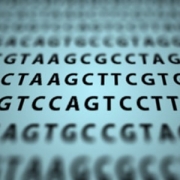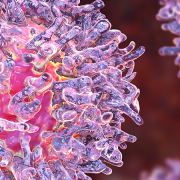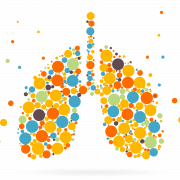BRCA testing for people with Jewish ancestry
NHS England has launched a testing service for people with Jewish ancestry to see if they carry a potentially harmful BRCA variant
Testing through the NHS Jewish BRCA Testing Programme is available to anyone aged 18 or older who receives NHS care in England and who has at least one Jewish grandparent. This includes people who do not practise the Jewish faith, or do not identify as Jewish.
BRCA genes
The BRCA1 and BRCA2 genes are tumour suppressor genes that are important for repairing breaks in DNA which contributes to protecting against cancer. However, when there are certain changes in the sequence of these genes, they may not function properly, leading to increased risk of breast, ovarian, prostate and pancreatic cancer.
Although not all people with a harmful BRCA variant will develop cancer, knowing that a person has a variant can facilitate screening to detect and treat any cancers earlier than they might otherwise be diagnosed. Or in some cases people may choose to have surgery such as a mastectomy to reduce their risk of developing cancer at all. It can also help doctors choose the best treatments if cancer does occur, as some types of targeted cancer therapy, such as PARP inhibitors, are especially effective against BRCA-deficient cancers.
Further reading: NICE recommendations broaden patient access to cancer drug olaparib
Why Jewish people?
BRCA variants are more prevalent in some ethnic groups. Approximately one in 40 Ashkenazi Jewish people carry a harmful BRCA variant, as do one in 140 Sephardi Jewish people. This compares to around one in 400 people in the general UK population.
Where such populations are identified it can make sense to have a specific screening programme – another example of this is the recent discovery of a BRCA1 variant which appears almost exclusively in people whose ancestors are from the Orkney Island of Westray.
“BRCA testing for the people most at risk has the potential to save lives, by allowing them to take steps to reduce the chance of cancers developing or making sure that any cancer can be detected as early as possible” said Peter Johnson, National Clinical Director for Cancer at NHS England.
How to access testing
The scheme will run for the next two years and aims to test around 30,000 people. Those who wish to take part are asked to join a waiting list by entering their details on the dedicated website here. They will then be sent a testing kit by post, which will include a saliva sample kit, plus consent forms and more detailed information.
Once the NHS has received the saliva kit and consent form, the sample is tested to look at the sequence of the BRCA1 and BRCA2 genes. A result is returned to the individual by post within 16 weeks.
There is also a genetic counsellor telephone line that participants can access at any point during the process. The counsellor can offer support for people deciding whether having the test is right for them, and the potential impact of the findings on their wider family. They can also answer questions about BRCA genes and cancer risk, or about the scientific or administrative aspect of genetic testing.
Next steps
If a patient has a positive result, they will be given a telephone appointment with a genetic counsellor within a week to discuss what this means for them. If they want immediate support, they can contact the main genetic counselling line that is open Monday to Friday.
They will also be referred to their local clinical genetics service who will provide consultation about potential screening programmes, risk reducing measures and ongoing management
“We know it can be daunting finding out whether or not you have an altered BRCA gene, and some people may feel they’d rather not know, but finding out early means people can get the support they need from the NHS,” said Mr Johnson.









